Eventos economicos
Miercoles
Solicitudes de hipotecas
Reporte del petroleo
Bank Reserve Settlement
MBA Purchase Applications
7:00 AM ET
EIA Petroleum Status Report
10:30 AM ET
Treasury STRIPS
3:00 PM ET
Miercoles 06/04/11 Posibilidad de cierre del gobierno US
Re: Miercoles 06/04/11 Posibilidad de cierre del gobierno US
Futures up, Au up, oil down, euro up
Treasurys Price Chg Yield %
2-Year Note* -4/32 0.822
10-Year Note* -16/32 3.487
* at close
10:02 p.m. EDT 04/05/11Futures Last Change Settle
Crude Oil 108.01 -0.33 108.34
Gold 1453.3 0.8 1452.5
DJ Industrials 12332 5 12327
S&P 500 1328.70 2.00 1326.70
10:13 p.m. EDT 04/05/11Currencies Last (bid) Prior Day †
Japanese Yen (USD/JPY) 85.44 84.83
Euro (EUR/USD) 1.4265 1.4221
† Late Tuesday in New York.
Treasurys Price Chg Yield %
2-Year Note* -4/32 0.822
10-Year Note* -16/32 3.487
* at close
10:02 p.m. EDT 04/05/11Futures Last Change Settle
Crude Oil 108.01 -0.33 108.34
Gold 1453.3 0.8 1452.5
DJ Industrials 12332 5 12327
S&P 500 1328.70 2.00 1326.70
10:13 p.m. EDT 04/05/11Currencies Last (bid) Prior Day †
Japanese Yen (USD/JPY) 85.44 84.83
Euro (EUR/USD) 1.4265 1.4221
† Late Tuesday in New York.
- admin
- Site Admin
- Mensajes: 165435
- Registrado: Mié Abr 21, 2010 9:02 pm
Re: Miercoles 06/04/11 Posibilidad de cierre del gobierno US
El Shanghai C. +0.30%, el Hang Seng -0.12%, el Nikkei -0.2%, Australia -0.19%
Los futures del Dow Jones 5 puntos al alza.
Yen down 85.44
Los futures del Dow Jones 5 puntos al alza.
Yen down 85.44
- admin
- Site Admin
- Mensajes: 165435
- Registrado: Mié Abr 21, 2010 9:02 pm
Re: Miercoles 06/04/11 Posibilidad de cierre del gobierno US
Copper April 05,21:59
Bid/Ask 4.2733 - 4.2754
Change +0.0415 +0.98%
Low/High 4.2301 - 4.2776
Charts
Nickel April 05,21:55
Bid/Ask 11.6116 - 11.6343
Change +0.1361 +1.19%
Low/High 11.4592 - 11.6520
Charts
Aluminum April 05,21:59
Bid/Ask 1.1735 - 1.1744
Change +0.0032 +0.27%
Low/High 1.1703 - 1.1753
Charts
Zinc April 05,21:59
Bid/Ask 1.0795 - 1.0802
Change +0.0091 +0.85%
Low/High 1.0686 - 1.0813
Charts
Lead April 05,21:58
Bid/Ask 1.2803 - 1.2833
Change +0.0014 +0.11%
Low/High 1.2771 - 1.2916
Bid/Ask 4.2733 - 4.2754
Change +0.0415 +0.98%
Low/High 4.2301 - 4.2776
Charts
Nickel April 05,21:55
Bid/Ask 11.6116 - 11.6343
Change +0.1361 +1.19%
Low/High 11.4592 - 11.6520
Charts
Aluminum April 05,21:59
Bid/Ask 1.1735 - 1.1744
Change +0.0032 +0.27%
Low/High 1.1703 - 1.1753
Charts
Zinc April 05,21:59
Bid/Ask 1.0795 - 1.0802
Change +0.0091 +0.85%
Low/High 1.0686 - 1.0813
Charts
Lead April 05,21:58
Bid/Ask 1.2803 - 1.2833
Change +0.0014 +0.11%
Low/High 1.2771 - 1.2916
- admin
- Site Admin
- Mensajes: 165435
- Registrado: Mié Abr 21, 2010 9:02 pm
Re: Miercoles 06/04/11 Posibilidad de cierre del gobierno US
Demanda de cobre sobreviviría alza de tasas en China
martes 5 de abril de 2011 17:15 GYT
Imprimir[-] Texto [+]
Por Alonso Soto y Melanie BurtonSANTIAGO (Reuters) - Las recientes alzas de las
tasas de interés en China están avivando los temores a una
desaceleración más profunda del mayor consumidor de cobre del
mundo, pero la demanda sigue sólida y se está recuperando en
otros mercados clave como Estados Unidos y Europa.El banco central chino elevó el martes las tasas de interés
por cuarta vez desde octubre, en un intento por contener la
inflación, lo que inicialmente deprimió los precios del cobre,
aunque las preocupaciones sobre una ajustada oferta del metal
terminaron revirtiendo esa tendencia."La demanda fundamental sigue estando ahí (en China). La
situación crediticia en China, cuando cambia, tiene un efecto
de corto plazo, pero la historia de crecimiento subyacente
sigue estando ahí", dijo el presidente ejecutivo de Xstrata
Copper, Charlie Sartain, en un lateral de la conferencia de
cobre CRU en Santiago."A nivel internacional, vemos una recuperación en otros
mercados menos significativos que China (...) En mercados como
Estados Unidos vemos una recuperación", agregó.El alza de tasas de China destaca la determinación del país
de contener la inflación para mantener encarrilada a una de las
economías de más rápido crecimiento del mundo.Sartain espera que la demanda por cobre en Estados Unidos
crezca un 6 por ciento y ve señales de una recuperación en
Europa, tras la crisis financiera del 2008.El consenso entre los ejecutivos de la industria es que la
demanda de China seguirá sólida debido a los planes de
infraestructura y urbanización de la segunda mayor economía del
mundo.PRECIO SE MANTENDRA ELEVADOEl precio del cobre subió un 31 por ciento en el
2010 y en febrero alcanzó un máximo histórico de 10.190 dólares
por tonelada. Sin embargo, desde entonces ha caído cerca de un
8 por ciento, en medio de una débil demanda de China, que
consume alrededor de un tercio del cobre mundial."El precio está alto y creo que va a continuar así, vemos
que algunas minas están acabando su producción en el mundo y el
consumo va a aumentar por el crecimiento de China, puede haber
nuevamente un aumento", dijo a Reuters Paulo Henrique de Godoy,
gerente general de operaciones del departamento de cobre de
Vale."Tal vez este año veamos el precio volver a subir por
encima de los 10.000 dólares" por tonelada, agregó el
ejecutivo.En un mercado que espera un déficit de 444.000 toneladas de
cobre en el 2011 y de 184.500 toneladas en el 2012, los precios
seguirían altos.Sin embargo, Miguel Angel Durán, presidente de la unidad
chilena de Anglo American, dice que los envíos de cobre
a China han caído."Por ahora es algo que necesitamos monitorear, pero no
tengo razones para pensar que sea una preocupación en el largo
plazo", dijo Durán.Algunos temen que los crecientes inventarios que los
inversionistas tienen en su poder como garantía para la toma de
préstamos podría reducir significativamente las proyecciones de
un déficit de cobre.Otros argumentan que los mercados se están obsesionando con
China y que prefieren un crecimiento económico más lento y
sustentable para evitar una burbuja.Aún así, China sigue siendo el mayor riesgo para el metal
rojo."En el corto plazo, ha sido y seguirá siendo en el futuro
cercano el desempeño de China", dijo Richard Adkerson,
presidente ejecutivo de la minera estadounidense
Freeport-McMoRan Copper & Gold Inc."Detrás de China está la economía global y el alza de los
precios del petróleo es un factor que afecta a la economía.
China hoy consume un 35-40 por ciento del cobre mundial y
genera el crecimiento de esta industria", dijo Adkerson.(Con el reporte adicional de Felipe Iturrieta. Escrito por
Simon Gardner. Editado en español por Juan José Lagorio)© Thomson Reuters 2011 All rights reserved
martes 5 de abril de 2011 17:15 GYT
Imprimir[-] Texto [+]
Por Alonso Soto y Melanie BurtonSANTIAGO (Reuters) - Las recientes alzas de las
tasas de interés en China están avivando los temores a una
desaceleración más profunda del mayor consumidor de cobre del
mundo, pero la demanda sigue sólida y se está recuperando en
otros mercados clave como Estados Unidos y Europa.El banco central chino elevó el martes las tasas de interés
por cuarta vez desde octubre, en un intento por contener la
inflación, lo que inicialmente deprimió los precios del cobre,
aunque las preocupaciones sobre una ajustada oferta del metal
terminaron revirtiendo esa tendencia."La demanda fundamental sigue estando ahí (en China). La
situación crediticia en China, cuando cambia, tiene un efecto
de corto plazo, pero la historia de crecimiento subyacente
sigue estando ahí", dijo el presidente ejecutivo de Xstrata
Copper, Charlie Sartain, en un lateral de la conferencia de
cobre CRU en Santiago."A nivel internacional, vemos una recuperación en otros
mercados menos significativos que China (...) En mercados como
Estados Unidos vemos una recuperación", agregó.El alza de tasas de China destaca la determinación del país
de contener la inflación para mantener encarrilada a una de las
economías de más rápido crecimiento del mundo.Sartain espera que la demanda por cobre en Estados Unidos
crezca un 6 por ciento y ve señales de una recuperación en
Europa, tras la crisis financiera del 2008.El consenso entre los ejecutivos de la industria es que la
demanda de China seguirá sólida debido a los planes de
infraestructura y urbanización de la segunda mayor economía del
mundo.PRECIO SE MANTENDRA ELEVADOEl precio del cobre subió un 31 por ciento en el
2010 y en febrero alcanzó un máximo histórico de 10.190 dólares
por tonelada. Sin embargo, desde entonces ha caído cerca de un
8 por ciento, en medio de una débil demanda de China, que
consume alrededor de un tercio del cobre mundial."El precio está alto y creo que va a continuar así, vemos
que algunas minas están acabando su producción en el mundo y el
consumo va a aumentar por el crecimiento de China, puede haber
nuevamente un aumento", dijo a Reuters Paulo Henrique de Godoy,
gerente general de operaciones del departamento de cobre de
Vale."Tal vez este año veamos el precio volver a subir por
encima de los 10.000 dólares" por tonelada, agregó el
ejecutivo.En un mercado que espera un déficit de 444.000 toneladas de
cobre en el 2011 y de 184.500 toneladas en el 2012, los precios
seguirían altos.Sin embargo, Miguel Angel Durán, presidente de la unidad
chilena de Anglo American, dice que los envíos de cobre
a China han caído."Por ahora es algo que necesitamos monitorear, pero no
tengo razones para pensar que sea una preocupación en el largo
plazo", dijo Durán.Algunos temen que los crecientes inventarios que los
inversionistas tienen en su poder como garantía para la toma de
préstamos podría reducir significativamente las proyecciones de
un déficit de cobre.Otros argumentan que los mercados se están obsesionando con
China y que prefieren un crecimiento económico más lento y
sustentable para evitar una burbuja.Aún así, China sigue siendo el mayor riesgo para el metal
rojo."En el corto plazo, ha sido y seguirá siendo en el futuro
cercano el desempeño de China", dijo Richard Adkerson,
presidente ejecutivo de la minera estadounidense
Freeport-McMoRan Copper & Gold Inc."Detrás de China está la economía global y el alza de los
precios del petróleo es un factor que afecta a la economía.
China hoy consume un 35-40 por ciento del cobre mundial y
genera el crecimiento de esta industria", dijo Adkerson.(Con el reporte adicional de Felipe Iturrieta. Escrito por
Simon Gardner. Editado en español por Juan José Lagorio)© Thomson Reuters 2011 All rights reserved
- admin
- Site Admin
- Mensajes: 165435
- Registrado: Mié Abr 21, 2010 9:02 pm
Re: Miercoles 06/04/11 Posibilidad de cierre del gobierno US
Admin, disculpa si se me pasó y no lei algun artículo que publicaste pero a qué te refieres con el título? "Posibilidad de cierre del gobierno US" , es referente al deficit? que llega a su limite en mayo?
- Victor VE
- Mensajes: 2987
- Registrado: Jue Abr 22, 2010 8:33 am
Re: Miercoles 06/04/11 Posibilidad de cierre del gobierno US
Tienen hasta el Viernes, todas las semanas van alargando un poquito mas y un poquito mas, los republicanos quieren recortar el deficit, los democratas no quieren, quieren ignorar por que los Republicanos ganaron las elecciones en Noviembre, esa fue la promesa: recortar el gasto y reducir el deficit.
No se ponen de acuerdo y en cualquier momento el gobierno cerrara por que no se ponen de acuerdo en cuanto van a recortar.
Los democratas estan en una campania arrogante diciendo que los cortes de los republicanos son extremistas. Los republicanos contestan que lo extremista es gastar como el gobierno de Obama lo hace el deficit es de trillones y Obama dice que va a recortar el deficit pero a la hora de cortarlo, se niega.
En eso andamos, todos los dias, es la misma jarana.
No se ponen de acuerdo y en cualquier momento el gobierno cerrara por que no se ponen de acuerdo en cuanto van a recortar.
Los democratas estan en una campania arrogante diciendo que los cortes de los republicanos son extremistas. Los republicanos contestan que lo extremista es gastar como el gobierno de Obama lo hace el deficit es de trillones y Obama dice que va a recortar el deficit pero a la hora de cortarlo, se niega.
En eso andamos, todos los dias, es la misma jarana.
- admin
- Site Admin
- Mensajes: 165435
- Registrado: Mié Abr 21, 2010 9:02 pm
Re: Miercoles 06/04/11 Posibilidad de cierre del gobierno US
Hay muy poca evidencia de que los dos partidos puedan ponerse de acuerdo para evitar el cierre del gobierno este fin de semana.
Budget Talks Head to Brink
Parties Far Apart on 2012 Spending, Long-Term Vision as Friday Deadline Nears
By NAFTALI BENDAVID And CAROL E. LEE
Republicans and Democrats stumbled one day closer to a government shutdown on Friday, as the two parties escalated what has become a broader battle over Washington's role in the U.S. economy.
Political leaders on Tuesday continued to talk past each other on federal spending, offering little evidence they could soon reach an agreement to avert a shutdown of the government this weekend. Damian Paletta has details.
.The two fights—one over funding the government for the next six months, the other over a sweeping plan to reshape the government for decades to come—showed how far apart the two parties are on basic fiscal issues ahead of the 2012 elections.
A Tuesday White House meeting called by President Barack Obama featured a series of frustrated exchanges between Senate Majority Leader Harry Reid (D., Nev.) and House Speaker John Boehner (R., Ohio), who upped his demand for spending cuts this year to $40 billion, according to people familiar with the session.
The battle was broadened Tuesday with the formal unveiling of the House Republican budget plan for the fiscal year 2012, which starts on Oct. 1.
As a political document, the blueprint from House Budget Committee Chairman Paul Ryan (R., Wis.) has the potential to reshape the current fight over fiscal policy and also the battle for control of Washington in 2012.
It suggested the government should stop being a provider of services and instead become a limited entity that collects taxes and passes them to state governments or private enterprises to administer.
It reduces Washington's role in providing health care and sharply cuts taxes.
Earlier this week, it seemed that this 2012 proposal—which calls for spending about $6 trillion less over 10 years than Mr. Obama proposes—would give Republicans cover to compromise on the still unresolved 2011 spending levels, where the disagreements are small by comparison.
So far, the opposite has held true, with Democrats using Mr. Ryan's proposal to attack the GOP, even as negotiations to avert a shutdown stumble.
The collision of the two budget debates is happening because Congress last year failed to pass a spending plan for 2011, and the government is being funded by short-term measures. Discussion of the 2012 budget is now in full swing.
.For the first time in days, few expressed optimism Tuesday that a short-term package could be completed. The administration and Congress instructed workers to make logistical arrangements for a possible closure beginning Friday.
"We're not going to allow the Senate, nor the White House, to put us in a box where we have to make a choice between two bad options—cutting a bad deal this week in order to keep the government open, or allowing the government to shut down due to Senate inaction," Mr. Boehner said.
Mr. Reid was equally defiant. "I'm not optimistic. No I'm not," Mr. Reid said after the White House meeting. "We have been willing to do what is fair in ratcheting down very, very hard on [domestic spending]…We can't go any more."
Mr. Obama, who has deliberately remained largely behind the scenes, said the White House is "prepared to meet for as long as possible" until an agreement is reached. "If they can't sort it out, then I want them back here tomorrow," Mr. Obama said.
Staffers from both sides had been working on a deal that would fund the government until the end of the fiscal year on Sept. 30 by cutting $33 billion from current spending levels.
By raising his target to $40 billion at the White House meeting, Mr. Boehner apparently was trying to show his restive caucus that he was working to achieve every concession possible.
Spokesmen for Messrs. Boehner and Reid said a later Boehner-Reid meeting at the Capitol was a productive discussion and that the men agreed to continue working on a budget solution.
Polls suggest voters would blame both parties if the government shuts down. But leaders of both sides are boxed in.
Mr. Boehner must contend with a crop of 87 new GOP House members elected last November on a surge of voter concern about government spending.
Democrats initially insisted on no cuts and face pressures to go no further than $33 billion.
Mr. Obama, who announced on Monday that he will run for re-election in 2012, has sought to position himself above the nitty-gritty haggling going on in Congress, which has limited his influence on the process.
Among the biggest sticking points is that Democrats want more of the cuts to come from "mandatory programs," whose spending is set by a pre-existing law or formula, like crime-victims' assistance programs. That would enable them to avoid some cuts in other areas they value, like environmental protection.
Republicans view these cuts as gimmicks because they are one-time trims that don't cut future government spending.
House Republicans are offering a one-week extension in government funding that would cut $12 billion from this year's spending. There is little chance Senate Democrats would consider such a measure.
Mr. Obama took Mr. Reid aside after the White House meeting, aides said, and told him that there should be no more short-term funding extension. One exception would be an extension of a few days if a late agreement is reached.
During the last government shutdown in 1995, new patients weren't accepted into clinical research at the National Institutes of Health.
President Barack Obama talked about the budget at the White House on Tuesday.
.Toxic waste clean-up came to a halt at 609 sites. National monuments and museums shut down, and 368 National Park Service sites closed, turning away about seven million visitors. About 200,000 passport applications went unprocessed.
After the 2011 budget is settled, the debate will shift immediately to 2012. Mr. Ryan's plan seeks to revamp popular yet increasingly expensive government programs lawmakers have been reluctant to tackle.
Beginning in 2022, Medicare would no longer exist as a government-run health-insurance program for those born starting in 1957.
Instead, these retirees would choose from a menu of private insurance plans funded by the government, while older retirees would continue under the existing Medicare system.
The federal portion of Medicaid, the health-care program for the poor, would be converted to a block grant to states, which would shrink over time, saving $771 billion over the next 10 years from projected costs.
Among the other areas targeted for cuts or revamps are education grants, environmental projects, food stamps, transportation spending, government salaries and both corporate and personal taxes.
"While we agree on...Congressman Ryan's goal, we strongly disagree with his approach, because any plan to reduce our deficit substantially must reflect American values of fairness and shared sacrifice," White House press secretary Jay Carney said. By contrast, Rep. Tom Price (R., Ga.), a leader of House conservatives, said it would "move our nation from an era of debt and doubt and despair to a stable and secure future."
The architects of the 2012 plan conceded it could open Republicans up to political attack. Asked what he says to Republicans who make such a charge, Mr. Ryan said Tuesday: "None of them say that—just kidding."
—Jonathan Weisman and Damian Paletta
Budget Talks Head to Brink
Parties Far Apart on 2012 Spending, Long-Term Vision as Friday Deadline Nears
By NAFTALI BENDAVID And CAROL E. LEE
Republicans and Democrats stumbled one day closer to a government shutdown on Friday, as the two parties escalated what has become a broader battle over Washington's role in the U.S. economy.
Political leaders on Tuesday continued to talk past each other on federal spending, offering little evidence they could soon reach an agreement to avert a shutdown of the government this weekend. Damian Paletta has details.
.The two fights—one over funding the government for the next six months, the other over a sweeping plan to reshape the government for decades to come—showed how far apart the two parties are on basic fiscal issues ahead of the 2012 elections.
A Tuesday White House meeting called by President Barack Obama featured a series of frustrated exchanges between Senate Majority Leader Harry Reid (D., Nev.) and House Speaker John Boehner (R., Ohio), who upped his demand for spending cuts this year to $40 billion, according to people familiar with the session.
The battle was broadened Tuesday with the formal unveiling of the House Republican budget plan for the fiscal year 2012, which starts on Oct. 1.
As a political document, the blueprint from House Budget Committee Chairman Paul Ryan (R., Wis.) has the potential to reshape the current fight over fiscal policy and also the battle for control of Washington in 2012.
It suggested the government should stop being a provider of services and instead become a limited entity that collects taxes and passes them to state governments or private enterprises to administer.
It reduces Washington's role in providing health care and sharply cuts taxes.
Earlier this week, it seemed that this 2012 proposal—which calls for spending about $6 trillion less over 10 years than Mr. Obama proposes—would give Republicans cover to compromise on the still unresolved 2011 spending levels, where the disagreements are small by comparison.
So far, the opposite has held true, with Democrats using Mr. Ryan's proposal to attack the GOP, even as negotiations to avert a shutdown stumble.
The collision of the two budget debates is happening because Congress last year failed to pass a spending plan for 2011, and the government is being funded by short-term measures. Discussion of the 2012 budget is now in full swing.
.For the first time in days, few expressed optimism Tuesday that a short-term package could be completed. The administration and Congress instructed workers to make logistical arrangements for a possible closure beginning Friday.
"We're not going to allow the Senate, nor the White House, to put us in a box where we have to make a choice between two bad options—cutting a bad deal this week in order to keep the government open, or allowing the government to shut down due to Senate inaction," Mr. Boehner said.
Mr. Reid was equally defiant. "I'm not optimistic. No I'm not," Mr. Reid said after the White House meeting. "We have been willing to do what is fair in ratcheting down very, very hard on [domestic spending]…We can't go any more."
Mr. Obama, who has deliberately remained largely behind the scenes, said the White House is "prepared to meet for as long as possible" until an agreement is reached. "If they can't sort it out, then I want them back here tomorrow," Mr. Obama said.
Staffers from both sides had been working on a deal that would fund the government until the end of the fiscal year on Sept. 30 by cutting $33 billion from current spending levels.
By raising his target to $40 billion at the White House meeting, Mr. Boehner apparently was trying to show his restive caucus that he was working to achieve every concession possible.
Spokesmen for Messrs. Boehner and Reid said a later Boehner-Reid meeting at the Capitol was a productive discussion and that the men agreed to continue working on a budget solution.
Polls suggest voters would blame both parties if the government shuts down. But leaders of both sides are boxed in.
Mr. Boehner must contend with a crop of 87 new GOP House members elected last November on a surge of voter concern about government spending.
Democrats initially insisted on no cuts and face pressures to go no further than $33 billion.
Mr. Obama, who announced on Monday that he will run for re-election in 2012, has sought to position himself above the nitty-gritty haggling going on in Congress, which has limited his influence on the process.
Among the biggest sticking points is that Democrats want more of the cuts to come from "mandatory programs," whose spending is set by a pre-existing law or formula, like crime-victims' assistance programs. That would enable them to avoid some cuts in other areas they value, like environmental protection.
Republicans view these cuts as gimmicks because they are one-time trims that don't cut future government spending.
House Republicans are offering a one-week extension in government funding that would cut $12 billion from this year's spending. There is little chance Senate Democrats would consider such a measure.
Mr. Obama took Mr. Reid aside after the White House meeting, aides said, and told him that there should be no more short-term funding extension. One exception would be an extension of a few days if a late agreement is reached.
During the last government shutdown in 1995, new patients weren't accepted into clinical research at the National Institutes of Health.
President Barack Obama talked about the budget at the White House on Tuesday.
.Toxic waste clean-up came to a halt at 609 sites. National monuments and museums shut down, and 368 National Park Service sites closed, turning away about seven million visitors. About 200,000 passport applications went unprocessed.
After the 2011 budget is settled, the debate will shift immediately to 2012. Mr. Ryan's plan seeks to revamp popular yet increasingly expensive government programs lawmakers have been reluctant to tackle.
Beginning in 2022, Medicare would no longer exist as a government-run health-insurance program for those born starting in 1957.
Instead, these retirees would choose from a menu of private insurance plans funded by the government, while older retirees would continue under the existing Medicare system.
The federal portion of Medicaid, the health-care program for the poor, would be converted to a block grant to states, which would shrink over time, saving $771 billion over the next 10 years from projected costs.
Among the other areas targeted for cuts or revamps are education grants, environmental projects, food stamps, transportation spending, government salaries and both corporate and personal taxes.
"While we agree on...Congressman Ryan's goal, we strongly disagree with his approach, because any plan to reduce our deficit substantially must reflect American values of fairness and shared sacrifice," White House press secretary Jay Carney said. By contrast, Rep. Tom Price (R., Ga.), a leader of House conservatives, said it would "move our nation from an era of debt and doubt and despair to a stable and secure future."
The architects of the 2012 plan conceded it could open Republicans up to political attack. Asked what he says to Republicans who make such a charge, Mr. Ryan said Tuesday: "None of them say that—just kidding."
—Jonathan Weisman and Damian Paletta
- admin
- Site Admin
- Mensajes: 165435
- Registrado: Mié Abr 21, 2010 9:02 pm
Re: Miercoles 06/04/11 Posibilidad de cierre del gobierno US
Ya parece Perú, el tipico populista en el poder y el congreso fraccionado.
- Victor VE
- Mensajes: 2987
- Registrado: Jue Abr 22, 2010 8:33 am
Re: Miercoles 06/04/11 Posibilidad de cierre del gobierno US
No Victor, es complemente diferente, aca las diferencias son ideologicas y filosoficas, en el Peru la diferencia es ideologica en el caso de la izquierda, pero todos los demas no tienen una posicion clara respecto a la economia, al gasto, al rol del gobierno, etc, etc. Es una discusion diferente.
Obama empezo el Lunes oficialmente su campania de reeleccion, aca se dice que la verdad el nunca dejo de hacer campania, eso es lo unico que hace.
Obama tiene problemas ya veo en la television como se le esta criticando por flip flopping (cambiando de posicion) es bastante vergonzoso ver videos de lo que dijo Obama como candidato o cuando fue inaugurado como presidente y lo que dice ahora, por ejemplo: el dijo que cerraria Guantanamo, despues de dos anios no puede hacerlo, el dijo que el presidente no tenia el poder suficiente para pasar sobre el Congreso y atacar militarmente a otro pais, eso es exactamente lo que ha hecho con Libia, cada cosa que propuso ha sido rechazada por los americanos, solo la extrema izquierda lo apoya a reganiadientes, los independiente ya lo abandonaron.
Obama sabe que tiene que cambiar de posiciones para poder atraer a los independientes nuevamente. Lo veo dificil, pero no imposible, en la politica todo es posible. Y como ya sabemos el electorado tiene mala memoria aca y en el Peru tambien.
Obama empezo el Lunes oficialmente su campania de reeleccion, aca se dice que la verdad el nunca dejo de hacer campania, eso es lo unico que hace.
Obama tiene problemas ya veo en la television como se le esta criticando por flip flopping (cambiando de posicion) es bastante vergonzoso ver videos de lo que dijo Obama como candidato o cuando fue inaugurado como presidente y lo que dice ahora, por ejemplo: el dijo que cerraria Guantanamo, despues de dos anios no puede hacerlo, el dijo que el presidente no tenia el poder suficiente para pasar sobre el Congreso y atacar militarmente a otro pais, eso es exactamente lo que ha hecho con Libia, cada cosa que propuso ha sido rechazada por los americanos, solo la extrema izquierda lo apoya a reganiadientes, los independiente ya lo abandonaron.
Obama sabe que tiene que cambiar de posiciones para poder atraer a los independientes nuevamente. Lo veo dificil, pero no imposible, en la politica todo es posible. Y como ya sabemos el electorado tiene mala memoria aca y en el Peru tambien.
- admin
- Site Admin
- Mensajes: 165435
- Registrado: Mié Abr 21, 2010 9:02 pm
Re: Miercoles 06/04/11 Posibilidad de cierre del gobierno US
Y si encima los republicanos logran repeler el seguro de salud, quedaria inmediamente eliminado todo lo que hizo en sus dos anios de gobierno. Lo que hay que recortar es lo que gasto en estos dos anios, ha gastado mas de lo que gastaron todos los presidentes anteriores juntos desde que se fundo esta republica. Es cierto.
- admin
- Site Admin
- Mensajes: 165435
- Registrado: Mié Abr 21, 2010 9:02 pm
Re: Miercoles 06/04/11 Posibilidad de cierre del gobierno US
Ejecutivo dispone paralizar por 180 días EIA de Tía María
El Ministerio de Energía y Minas busca dejar sin efecto las protestas en la convulsionada provincia de Islay, Arequipa.
En aras de mantener la paz social en la zona de Cocachacra, el Ministerio de Energía y Minas (MEM) dispuso, a través de una medida cautelar administrativa, la paralización por 180 días calendario la evaluación del Estudio de Impacto Ambiental (EIA) del proyecto minero Tía María.
Dicho proyecto está ubicado en el distrito de Cocachacra, provincia de Islay, departamento de Arequipa.
“Se dispone imponer de oficio, medida cautelar administrativa, consistente en la paralización del trámite del procedimiento administrativo de evaluación del Estudio de Impacto Ambiental del proyecto minero Tía María por un plazo de ciento ochenta (180) días calendario”, explicó la Dirección General de Asuntos Ambientales Mineros (DGAAM) del MEM.
La DGAAM agregó que tal decisión se basa en que actualmente se vive una situación de gran conmoción social, violencia e inestabilidad en la zona de la provincia de Islay, zona de impacto o influencia del proyecto Tía María, que se traduce en una huelga indefinida así como en actos de violencia hacia la propiedad pública y privada, poniendo en riesgo la eficacia del procedimiento administrativo en trámite.
REACCIÓN EN ISLAY
Consultado por la medida anunciada por el Ejecutivo, el dirigente del Frente de Defensa de Islay, Jaime de la Cruz, afirmó que solo levantarán la huelga “cuando el Gobierno anuncie el retiro definitivo del proyecto minero”.
Fuente: http://elcomercio.pe/peru/738470/notici ... -tia-maria
El Ministerio de Energía y Minas busca dejar sin efecto las protestas en la convulsionada provincia de Islay, Arequipa.
En aras de mantener la paz social en la zona de Cocachacra, el Ministerio de Energía y Minas (MEM) dispuso, a través de una medida cautelar administrativa, la paralización por 180 días calendario la evaluación del Estudio de Impacto Ambiental (EIA) del proyecto minero Tía María.
Dicho proyecto está ubicado en el distrito de Cocachacra, provincia de Islay, departamento de Arequipa.
“Se dispone imponer de oficio, medida cautelar administrativa, consistente en la paralización del trámite del procedimiento administrativo de evaluación del Estudio de Impacto Ambiental del proyecto minero Tía María por un plazo de ciento ochenta (180) días calendario”, explicó la Dirección General de Asuntos Ambientales Mineros (DGAAM) del MEM.
La DGAAM agregó que tal decisión se basa en que actualmente se vive una situación de gran conmoción social, violencia e inestabilidad en la zona de la provincia de Islay, zona de impacto o influencia del proyecto Tía María, que se traduce en una huelga indefinida así como en actos de violencia hacia la propiedad pública y privada, poniendo en riesgo la eficacia del procedimiento administrativo en trámite.
REACCIÓN EN ISLAY
Consultado por la medida anunciada por el Ejecutivo, el dirigente del Frente de Defensa de Islay, Jaime de la Cruz, afirmó que solo levantarán la huelga “cuando el Gobierno anuncie el retiro definitivo del proyecto minero”.
Fuente: http://elcomercio.pe/peru/738470/notici ... -tia-maria
- Victor VE
- Mensajes: 2987
- Registrado: Jue Abr 22, 2010 8:33 am
Re: Miercoles 06/04/11 Posibilidad de cierre del gobierno US
La Resolucion de Ryan
El atento mas serio de nuestra generacion de reformar el gobierno de US.
Los democratas y los miembros del tea party decian que los republicanos no tienen lo que se necesita para reformar los gastos mas altos del presupuesto Americano. Ayer Paul Ryan el chairman del House Budget (presupuesto) esta haciendo precisamente eso. Nosotros separaremos a los que verdaderamente quieren hacer una reforma de los que solamente dicen que quieren hacerla.
La propuesta republicana de Paul Ryan es el atento mas serio en nuestra generacion de reformar al gobierno. El plan ofrece a los electores un plan para reformar verdaderamente las raices del desorden fiscal de Washington. Este plan va al corazon del problema del gasto, especialmente a Medicaid y Medicare que son los que mas rapido crecen y aumentan el gasto del gobierno.
Mr. Ryan propone gastar $6.2 trillones menos que Obama regresando a los niveles de gasto del 20% del PBI promedio y agrega $4.7 billones menos de deuda nacional.
Obama segura gastando el 24% del GDP inclusive sin contar con el seguro de salud de Obama, mientras aumenta el deficit en $600 billones al anio o mas a pesar de lso trillones de aumentos de impuestos.
El plan de Ryan conrta $179 billones en el 2012 y otros $241 billones en el 2013. Este sera el ahorro mas grande en dos anios desde el final de la Segunda Guerra Mundial.
Mr. Ryan cortara los beneficios a las corporaciones y cientos de programas inefectivos, subsidios a la agricultura, reducira la fuerza laboral del gobierno en 10% y repelera el seguro de salud de Obama entre otras cosas.
Su propuesta reducira el endeudamiento federal a el 2% del PBI para el 2017, lo cual es manejable y mucho mejor que el 10% del PBI que es ahora. Esto seria un logro historico.
Y los servicios de beneficiencia, los republicanos (Mr. Ryan) quieren que cada estado se encarge de administrarlos de manera que ellos sabran mejor como ahorrar dinero y como mejorar los servicios de salud. Esta es la manera como exitosamente se reformo en los 90s y les dara mas control a los estados sobre sus presupuestos.
Las reformas del Medicare, seguro de salud para los retirados solo tomaran efecto para los menores de 55 anios, los jubilados actuales seguiran gozando de sus beneficios sin ningun cambio. Actualmente Medicare paga directamente a los doctores y hospitales tarifas fijas con precio controlado. Los doctores no quieren recibir a pacientes de Medicare, de esta manera se evitaria la restriccion.
more
The Ryan Resolution
The most serious attempt to reform government in a generation..
Well, so much for dodging entitlements. This year's trendy complaint, shared by the left and the tea party, that Republicans hadn't tackled the toughest budget issues was blown away yesterday with the release of House Budget Chairman Paul Ryan's budget for 2012. We'll now separate the real reformers from the fiscal chickenhawks.
Mr. Ryan's budget rollout is an important political and policy moment because it is the most serious attempt to reform government in at least a generation. The plan offers what voters have been saying they want—a blueprint to address the roots of Washington's fiscal disorder. It does so not by the usual posturing ("paygo") and symbolism (balanced budget amendment) but by going to the heart of the spending problem, especially on the vast and rapidly growing health-care entitlements of Medicaid and Medicare. The Wisconsin Republican's plan is a generational choice, not the usual Beltway echo.
***
That choice is clear enough by comparing the Ryan blueprint with the 2012 budget that President Obama rolled out only two months ago. The nearby charts show the difference in federal outlays overall and as a share of GDP over the next decade. Mr. Ryan proposes to spend $6.2 trillion less, return spending to its modern average of roughly 20% of GDP, and add $4.7 trillion less to the national debt.
...Mr. Obama would keep spending at 24% of GDP even before ObamaCare fully kicks in, while running annual deficits of $600 billion a year or more despite trillions of dollars in tax increases.
Some House conservatives are grousing that Mr. Ryan's proposal doesn't cut spending enough to balance the budget in 10 years. This is a foolish complaint. Mr. Obama will be happy to balance the budget too—at 24% of GDP, which means far higher taxes. Republicans should keep their eye on what Milton Friedman understood was the real burden of government, which is spending.
The Ryan plan would chop $179 billion from the 2012 White House budget and another $241 billion in 2013. This would be the largest two-year savings since the demobilization of the military after World War II. Mr. Ryan would cut funding for corporate welfare and hundreds of ineffective programs, reform agriculture subsidies, reduce the federal work force by 10% and repeal ObamaCare, among other good ideas.
Mr. Ryan's budget would reduce federal borrowing to 2% of GDP by 2017, which is a manageable level of new debt and a huge improvement from the roughly 10% of GDP the Treasury is borrowing now. Given the epic hole we are in, this would be a historic achievement.
As for entitlements, the House GOP wants to let the states run Medicaid in return for an annual fixed payment or "block grant," letting Governors experiment with ways to save money and provide better care. This is the way welfare was successfully reformed in the 1990s, and it would give states more control over their fastest-growing budget item.
On Medicare, the Wisconsin Republican would phase in reforms for Americans under 55 years old. Medicare currently pays doctors and hospitals directly on a fee-for-service model that is price-controlled and increasingly unaffordable. Fewer doctors want to see Medicare patients and, among other deficiencies, it lacks true catastrophic coverage.
Mr. Ryan would create a "premium support" system in which government would pay a subsidy of roughly $15,000 to private insurers chosen by seniors. This means at age 65 you would be able to keep your same insurer, with the feds paying for that insurance instead of your employer. That would slow the growth of spending over time through competition and senior choice, rather than continue on Medicare's current path of government-rationed care.
Tackling Medicare is the politically riskiest part of this budget, as Democrats are already returning to their old stand of denouncing any change as a "war on the elderly and poor" (as Illinois Democrat Jan Schakowsky put it). These are the same Democrats who oppose smaller spending cuts on grounds that entitlements are where the real money is. The truth is they want only token spending cuts of the kind that Mr. Obama's budget offers.
For that political reason, Mr. Ryan decided not to walk point on Social Security, though everyone knows that retirement entitlement is also unsustainable with $17 trillion in unfunded liabilities. As a policy matter, Social Security is also the easiest problem to solve—change the benefit formula, means test benefits, raise the retirement age, and more. But you can't blame Republicans for dodging at least one political buzzsaw if Mr. Obama is going to continue to dodge all fiscal responsibility.
Unlike many Republicans and some in the tea party, Mr. Ryan understands that the budget can't be balanced with spending cuts alone. Above all, we need faster economic growth to drive higher incomes and more revenues. So Mr. Ryan also proposes a tax reform that would cut the U.S. personal and corporate tax rate to 25%, in return for eliminating loopholes and credits that allow companies like Whirlpool and General Electric to pay little tax.
Chairman Dave Camp has been pushing a similar reform in the tax-writing House Ways and Means Committee, and he deserves credit for letting Mr. Ryan roll it out as part of the budget. Republicans will have a better chance of winning the fiscal argument if they keep explaining that their reforms are essential to reviving growth and raising middle class incomes.
***
Since they only control the House, Republicans can't expect to pass all or even most of these reforms this year. But in rising to meet our main fiscal challenges, they are honoring their pledge to voters last year and offering voters a serious governing platform. Mr. Ryan is showing Americans that there is an alternative to Mr. Obama's vision of the U.S. as a high-tax, slow-growth, European-style entitlement state.
The GOP political bet is that this debate won't be another replay of 1985, 1995 or 2005 because the political times have changed. Our fiscal problems are far deeper, and Mr. Ryan's hope is that the American people realize this and are willing to reward politicians who address those problems, rather than politicians who say we can keeping spending and borrowing ad infinitum.
Republicans in Congress will need to rise to Mr. Ryan's occasion, and in particular so will GOP Presidential candidates. The first voter test for those candidates should be which of them are missing in action from the debate that House Republicans are kicking off. If we fail to reform the entitlement state now, we will do it eventually. But the price and pain will be so much greater.
El atento mas serio de nuestra generacion de reformar el gobierno de US.
Los democratas y los miembros del tea party decian que los republicanos no tienen lo que se necesita para reformar los gastos mas altos del presupuesto Americano. Ayer Paul Ryan el chairman del House Budget (presupuesto) esta haciendo precisamente eso. Nosotros separaremos a los que verdaderamente quieren hacer una reforma de los que solamente dicen que quieren hacerla.
La propuesta republicana de Paul Ryan es el atento mas serio en nuestra generacion de reformar al gobierno. El plan ofrece a los electores un plan para reformar verdaderamente las raices del desorden fiscal de Washington. Este plan va al corazon del problema del gasto, especialmente a Medicaid y Medicare que son los que mas rapido crecen y aumentan el gasto del gobierno.
Mr. Ryan propone gastar $6.2 trillones menos que Obama regresando a los niveles de gasto del 20% del PBI promedio y agrega $4.7 billones menos de deuda nacional.
Obama segura gastando el 24% del GDP inclusive sin contar con el seguro de salud de Obama, mientras aumenta el deficit en $600 billones al anio o mas a pesar de lso trillones de aumentos de impuestos.
El plan de Ryan conrta $179 billones en el 2012 y otros $241 billones en el 2013. Este sera el ahorro mas grande en dos anios desde el final de la Segunda Guerra Mundial.
Mr. Ryan cortara los beneficios a las corporaciones y cientos de programas inefectivos, subsidios a la agricultura, reducira la fuerza laboral del gobierno en 10% y repelera el seguro de salud de Obama entre otras cosas.
Su propuesta reducira el endeudamiento federal a el 2% del PBI para el 2017, lo cual es manejable y mucho mejor que el 10% del PBI que es ahora. Esto seria un logro historico.
Y los servicios de beneficiencia, los republicanos (Mr. Ryan) quieren que cada estado se encarge de administrarlos de manera que ellos sabran mejor como ahorrar dinero y como mejorar los servicios de salud. Esta es la manera como exitosamente se reformo en los 90s y les dara mas control a los estados sobre sus presupuestos.
Las reformas del Medicare, seguro de salud para los retirados solo tomaran efecto para los menores de 55 anios, los jubilados actuales seguiran gozando de sus beneficios sin ningun cambio. Actualmente Medicare paga directamente a los doctores y hospitales tarifas fijas con precio controlado. Los doctores no quieren recibir a pacientes de Medicare, de esta manera se evitaria la restriccion.
more
The Ryan Resolution
The most serious attempt to reform government in a generation..
Well, so much for dodging entitlements. This year's trendy complaint, shared by the left and the tea party, that Republicans hadn't tackled the toughest budget issues was blown away yesterday with the release of House Budget Chairman Paul Ryan's budget for 2012. We'll now separate the real reformers from the fiscal chickenhawks.
Mr. Ryan's budget rollout is an important political and policy moment because it is the most serious attempt to reform government in at least a generation. The plan offers what voters have been saying they want—a blueprint to address the roots of Washington's fiscal disorder. It does so not by the usual posturing ("paygo") and symbolism (balanced budget amendment) but by going to the heart of the spending problem, especially on the vast and rapidly growing health-care entitlements of Medicaid and Medicare. The Wisconsin Republican's plan is a generational choice, not the usual Beltway echo.
***
That choice is clear enough by comparing the Ryan blueprint with the 2012 budget that President Obama rolled out only two months ago. The nearby charts show the difference in federal outlays overall and as a share of GDP over the next decade. Mr. Ryan proposes to spend $6.2 trillion less, return spending to its modern average of roughly 20% of GDP, and add $4.7 trillion less to the national debt.
...Mr. Obama would keep spending at 24% of GDP even before ObamaCare fully kicks in, while running annual deficits of $600 billion a year or more despite trillions of dollars in tax increases.
Some House conservatives are grousing that Mr. Ryan's proposal doesn't cut spending enough to balance the budget in 10 years. This is a foolish complaint. Mr. Obama will be happy to balance the budget too—at 24% of GDP, which means far higher taxes. Republicans should keep their eye on what Milton Friedman understood was the real burden of government, which is spending.
The Ryan plan would chop $179 billion from the 2012 White House budget and another $241 billion in 2013. This would be the largest two-year savings since the demobilization of the military after World War II. Mr. Ryan would cut funding for corporate welfare and hundreds of ineffective programs, reform agriculture subsidies, reduce the federal work force by 10% and repeal ObamaCare, among other good ideas.
Mr. Ryan's budget would reduce federal borrowing to 2% of GDP by 2017, which is a manageable level of new debt and a huge improvement from the roughly 10% of GDP the Treasury is borrowing now. Given the epic hole we are in, this would be a historic achievement.
As for entitlements, the House GOP wants to let the states run Medicaid in return for an annual fixed payment or "block grant," letting Governors experiment with ways to save money and provide better care. This is the way welfare was successfully reformed in the 1990s, and it would give states more control over their fastest-growing budget item.
On Medicare, the Wisconsin Republican would phase in reforms for Americans under 55 years old. Medicare currently pays doctors and hospitals directly on a fee-for-service model that is price-controlled and increasingly unaffordable. Fewer doctors want to see Medicare patients and, among other deficiencies, it lacks true catastrophic coverage.
Mr. Ryan would create a "premium support" system in which government would pay a subsidy of roughly $15,000 to private insurers chosen by seniors. This means at age 65 you would be able to keep your same insurer, with the feds paying for that insurance instead of your employer. That would slow the growth of spending over time through competition and senior choice, rather than continue on Medicare's current path of government-rationed care.
Tackling Medicare is the politically riskiest part of this budget, as Democrats are already returning to their old stand of denouncing any change as a "war on the elderly and poor" (as Illinois Democrat Jan Schakowsky put it). These are the same Democrats who oppose smaller spending cuts on grounds that entitlements are where the real money is. The truth is they want only token spending cuts of the kind that Mr. Obama's budget offers.
For that political reason, Mr. Ryan decided not to walk point on Social Security, though everyone knows that retirement entitlement is also unsustainable with $17 trillion in unfunded liabilities. As a policy matter, Social Security is also the easiest problem to solve—change the benefit formula, means test benefits, raise the retirement age, and more. But you can't blame Republicans for dodging at least one political buzzsaw if Mr. Obama is going to continue to dodge all fiscal responsibility.
Unlike many Republicans and some in the tea party, Mr. Ryan understands that the budget can't be balanced with spending cuts alone. Above all, we need faster economic growth to drive higher incomes and more revenues. So Mr. Ryan also proposes a tax reform that would cut the U.S. personal and corporate tax rate to 25%, in return for eliminating loopholes and credits that allow companies like Whirlpool and General Electric to pay little tax.
Chairman Dave Camp has been pushing a similar reform in the tax-writing House Ways and Means Committee, and he deserves credit for letting Mr. Ryan roll it out as part of the budget. Republicans will have a better chance of winning the fiscal argument if they keep explaining that their reforms are essential to reviving growth and raising middle class incomes.
***
Since they only control the House, Republicans can't expect to pass all or even most of these reforms this year. But in rising to meet our main fiscal challenges, they are honoring their pledge to voters last year and offering voters a serious governing platform. Mr. Ryan is showing Americans that there is an alternative to Mr. Obama's vision of the U.S. as a high-tax, slow-growth, European-style entitlement state.
The GOP political bet is that this debate won't be another replay of 1985, 1995 or 2005 because the political times have changed. Our fiscal problems are far deeper, and Mr. Ryan's hope is that the American people realize this and are willing to reward politicians who address those problems, rather than politicians who say we can keeping spending and borrowing ad infinitum.
Republicans in Congress will need to rise to Mr. Ryan's occasion, and in particular so will GOP Presidential candidates. The first voter test for those candidates should be which of them are missing in action from the debate that House Republicans are kicking off. If we fail to reform the entitlement state now, we will do it eventually. But the price and pain will be so much greater.
- admin
- Site Admin
- Mensajes: 165435
- Registrado: Mié Abr 21, 2010 9:02 pm
Re: Miercoles 06/04/11 Posibilidad de cierre del gobierno US
Los graficos del dia, 
.

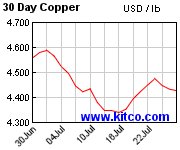
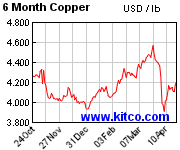
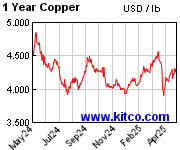
.

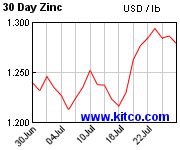
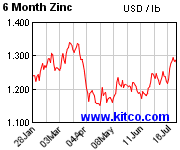
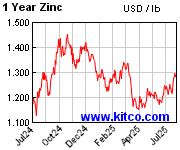
.

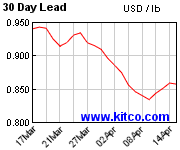
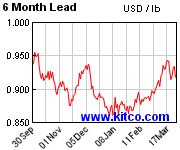
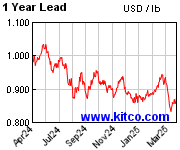
.



.



.
.




.




.




.



.



.
- Comodoro
- Mensajes: 980
- Registrado: Jue May 06, 2010 8:24 am
- Ubicación: LIMA
Re: Miercoles 06/04/11 Posibilidad de cierre del gobierno US
Gracias Comodoro!!
- admin
- Site Admin
- Mensajes: 165435
- Registrado: Mié Abr 21, 2010 9:02 pm
¿Quién está conectado?
Usuarios navegando por este Foro: No hay usuarios registrados visitando el Foro y 22 invitados
